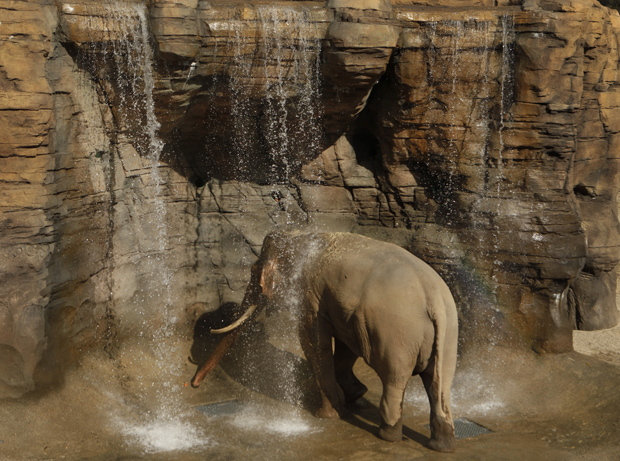Once again we are reminded of the many shades of grey we face regularly in the zoo and aquarium industry as a decision on the future of elephants at the LA Zoo was handed down from the CA Superior Court last week. The suit, brought against the zoo by a well-meaning real estate agent, Aaron Leider, demanded that elephants be banned from the zoo and relocated to a sanctuary. Judge John Segal ultimately ruled that elephants may remain at the zoo, but the zoo must essentially clean up its act, stating, among other things, that the zoo must ban negative re-enforcement tools, such as bull hooks and electroshock. However, the zoo discontinued use of these tools years ago.
The judge’s 56-page decision berated the zoo, essentially pointing out inadequacies of captivity and lack of understanding of how captivity affects the elephants. He writes: “The Elephants of Asia exhibit at the Los Angeles Zoo is not a happy place for elephants.”
Aside from the obvious question (who is this judge to assert whether or not an elephant is happy?) the lawsuit brings up questions with which we are often faced—and are rarely brave enough to answer. Is captivity ever good enough? Should animals only be in the wild? How much interaction with humans should captive animals have?
To me, there are no perfect answers. But, we need to remind ourselves that the zoo industry is constantly evolving—an evolution that is sometimes slow, but on the whole clearly visible. As we continue to understand the needs and psychologies of animals, both in and out of captivity—as any scientist worth his or her salt will tell you, they are different!—captive environments and lifestyles will change. Nothing in life is completely static.
I am not afraid of these confrontations, of these questions, of these indignations. They push us to examine. They push us to improve. And maybe one day we will no longer have the need for zoos and aquariums, but at the rate we as a species are destroying habitat, captive environments may be the only sanctuaries left.






















